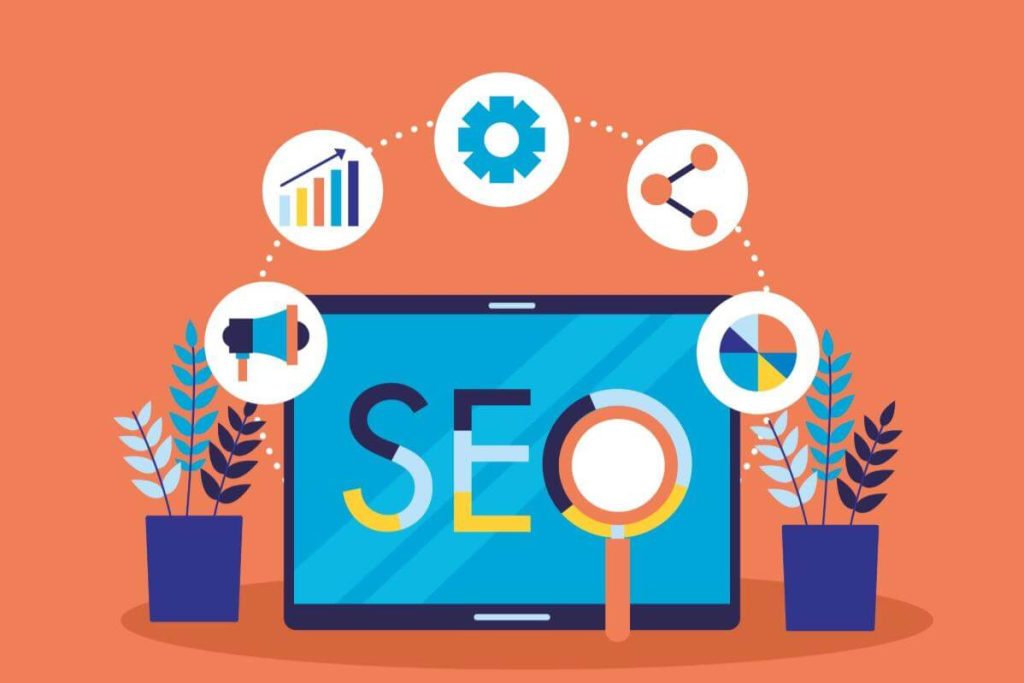What is SEO?
Search engine optimisation, or SEO, is a method of attracting people to your website or content from unpaid, editorial, organic, or natural search results in search engines. It seeks to raise the position of your website in search results pages. Increasing a company’s exposure, whether it is a small or medium sized enterprise in organic search results is the purpose of SEO. As a result, the company’s website receives more significant traffic, boosting the likelihood that more visitors to the website will be converted into customers and monetary amounts.
What are The Differences Between Paid and Organic Search?

Paid search refers to the arrangement of ads on search engine results pages (SERPs), for which advertisers pay to emerge in specific ranks. These ads are usually labelled as sponsored or paid so they usually appear above or below the organic search results.
On the other hand, organic search refers to the natural or unpaid results that appear on SERPs based on the relevancy to the individual’s search query. These results are determined by complex algorithms that will consider varied factors, such as the website’s content, relevance, and control.
It’s critical to note that both paid and organic search have benefits and disadvantages, and combining both can lead to a successful search engine marketing strategy. Here are the differences between paid and organic searches.
| Aspect | Paid Search | Organic Search |
| Cost | Paid search requires a budget for advertising costs | No cost associated with appearing in organic search results |
| Visibility | Immediate visibility at the top of search results | Takes time and effort to improve rankings for visibility |
| Control | Advertiser has control over ad copy and targeting | Search engine determines ranking based on content relevance |
| Credibility | May be perceived as less credible than organic results | Considered more credible by users as it’s based on relevance and authority |
| Click-through rate | Higher click-through rate due to prominent placement | Lower click-through rate due to lower placement |
| Targeting | Ads can be targeted to specific demographics, keywords, and locations | Content can be optimised to target specific keywords, but less specific targeting |
| ROI | Advertisers can measure ROI through conversion tracking | ROI can be harder to measure as it’s based on organic traffic and conversions |
| Maintenance | Requires ongoing maintenance and optimization to maintain performance | Requires ongoing content creation and optimization to maintain rankings |
What are The Similarities Between Paid and Organic Search

Paid and organic searches do share some similarities, which include traffic, keyword research and landing page.
Traffic
Both paid and organic search have the primary objective of generating traffic. This is because user intent makes up both paid and organic search traffic. This means that when someone searches on Google for information or asks a question, they engage actively and are, therefore, more inclined to act on the information they discover.
Keyword Research
When using search engines for both organic and paid searches, keyword research is essential to identify relevant keywords. It is necessary to conduct keyword research for both organic and paid searches. A website can optimise its content to rate higher on search engine result pages (SERPs) for certain keywords by knowing the precise keywords that individuals use to research.
Landing Pages
Creating landing pages is necessary for both organic and paid searches. In the case of SEO, the landing page should be connected to your website, while for paid searches, it can be the same as your organic landing page or a separate standalone page.
The Three Fundamentals of SEO

A core competency for businesses such as small or medium sized enterprises, wanting to maintain their competitive edge, is knowing how to get your name, website, or business found by searchers and understanding that SEO is an ever-evolving process.
Although SEO constantly changes subtly, its core beliefs remain constant. Three main components comprise the fundamental SEO concepts you should be aware of, including on-page optimisation, off-page optimisation and technical optimisation.
On-page Optimisation
The process of ensuring the information on your site is current and offers a terrific user experience is known as on-page optimisation. A content management system can help you accomplish this, which includes choosing the appropriate keywords to target within your work. WordPress, Wix, Drupal, Shopify, and Expression Engine are popular examples of content management systems.
Off-page Optimisation
Off-page optimization refers to methods used to improve a website’s search engine ranking outside of the website. Backlinks are crucial for off-page optimization as they increase a website’s reputation and domain authority. Domain authority is a metric that search engines use to evaluate a website’s credibility based on elements such as the rate and quantity of inbound links. A higher domain authority means a website is more likely to rank higher in search engine results pages, making it easier for users to find and potentially increasing traffic and revenue.
Technical Optimisation
Technical optimisation refers to the procedure of finishing tasks on your website that are not linked to content but are intended to boost SEO. This portion usually occurs in the background.
SEO and SEM

Search engine optimisation, or SEO, is changing a website to emerge higher on organic (unpaid) search engine results pages (SERPs). By improving a website’s relevancy, command, and user understanding, SEO strives to boost the visibility and quality of the traffic from search engines to the organisation’s website.
The strategy of setting up purchased advertising campaigns to come across in the search engine results pages (SERPs) is called search engine marketing or SEM. SEM is oftentimes utilised to sustain SEO efforts and entails paying for advertising stated in funded portions of search engine results.
While both SEO and SEM aspire to raise a website’s exposure in search engine results, their strategies to reach there are different. SEM utilises paid advertising campaigns to appear in search engine results pages, whereas SEO optimises the website’s content, format, and links to rate better in organic search results.
Conclusion
In conclusion, SEO is essential for increasing online performance and organic search engine traffic. To keep your website relevant and effective in the online market, keeping up with the most recent SEO trends and algorithms is crucial.
An effective way for all kinds of organisations, whether small or medium enterprises, to stay ahead of the SEO game is by imploring the help of an SEO company. An SEO company can help businesses optimise their content to be relevant to the business and their target audience. Newnormz provides professional website design and SEO services as their skilled individuals will build enticing web pages that stand out online.
Bryan Tan is an SEO Specialist and CEO at Newnormz, helping hundreds of businesses achieve first-page rankings on Google. With a passion for driving organic growth, Bryan blends innovative strategies with hands-on experience to optimize websites for maximum visibility. Always at the forefront of the latest SEO insights and trends, he consistently adapts to the evolving digital landscape.






